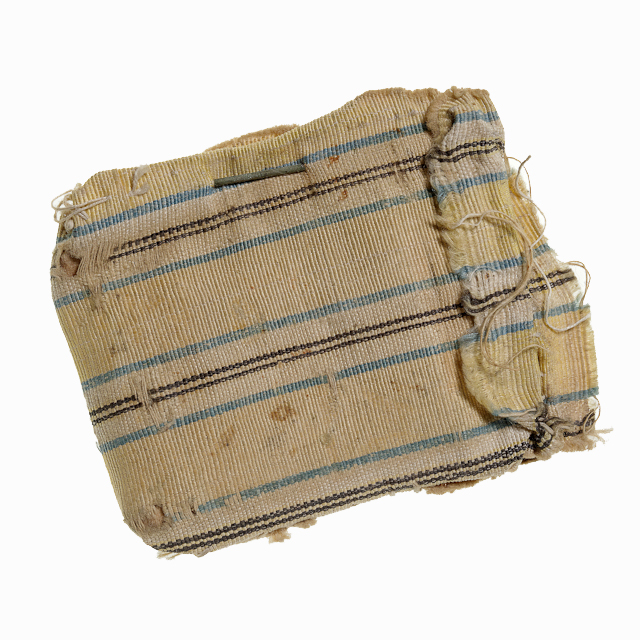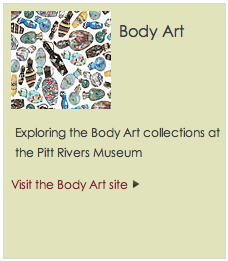Qur'anic Amulet, Algeria

Transferred from the Wellcome Institute in 1985; 1985.52.254
This Qur’anic amulet, made from a striped textile pouch stitched closed and sealed with a metal pin, contains a medicinal substance wrapped in paper printed with religious verses. It is said to cure contagious diseases and was collected in Sidi-bel-Abbes, Algeria, by the French-Algerian zoologist Paul Maurice Pallary (1869-1942).
Islam is the state religion of Algeria and it permeates many aspects of everyday life. Traditional Islamic medicine combines the healing powers of the Qur’an with natural remedies, and is particularly important in rural areas where people have limited access to modern medicine.
Traditional healers, sometimes called ‘sorcerers’ or ‘shamans’, use a mixture of Qur’anic verses, water, herbs, ornaments, oil, and honey to treat and protect against illness and disease. Verses of the Qur’an may be recited, written with ink that can be dissolved in water and drunk as a holy tonic, or placed in amulets like this one.
Connected Objects: Textual Amulet






